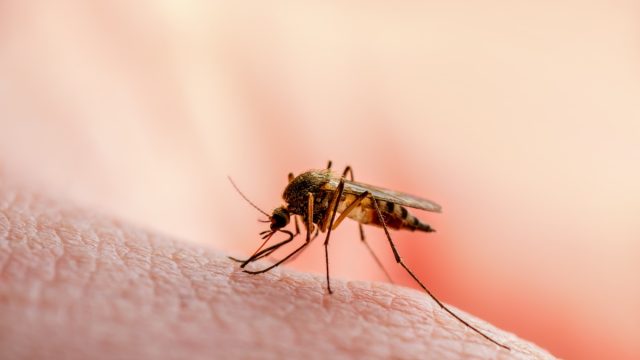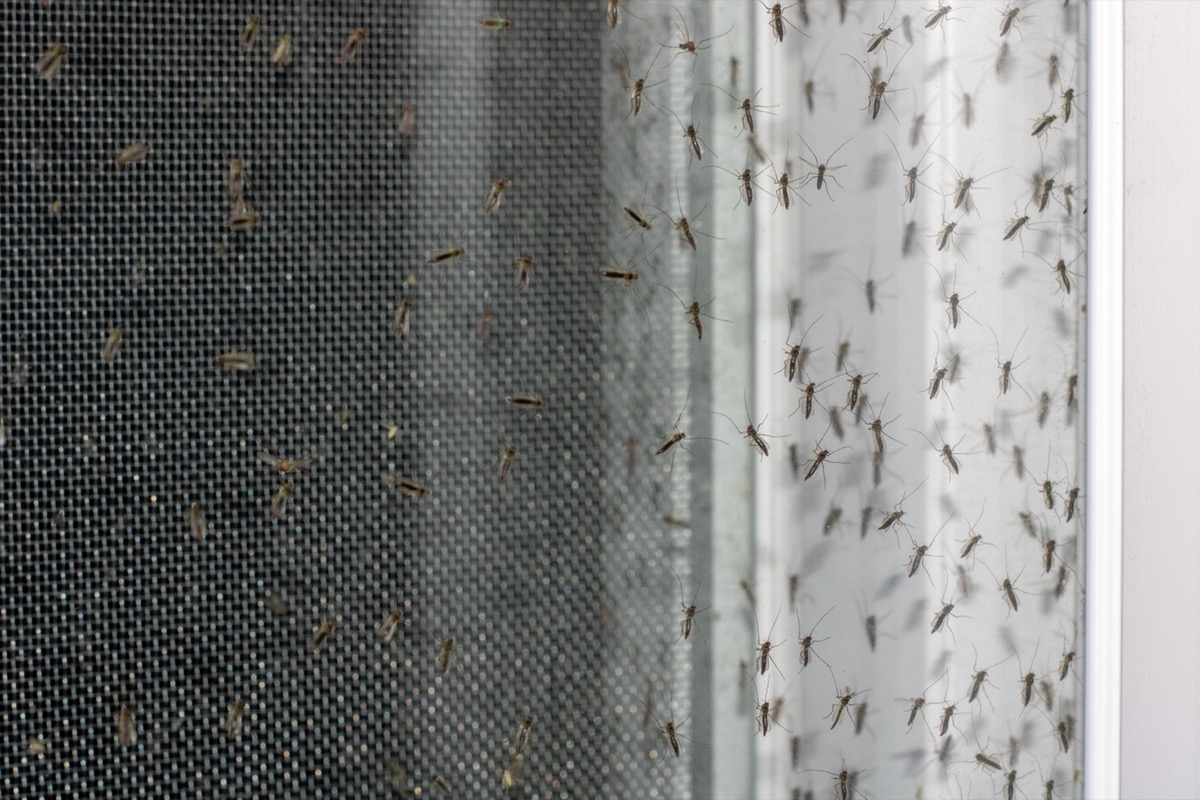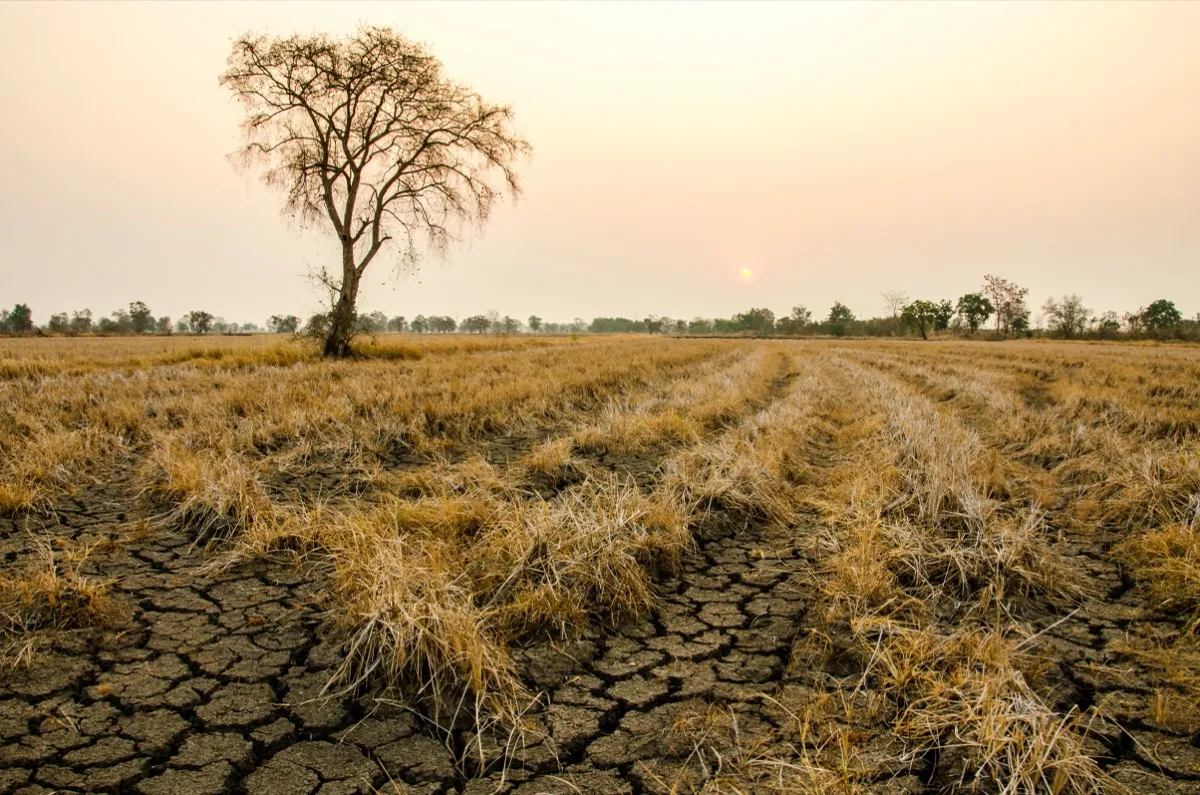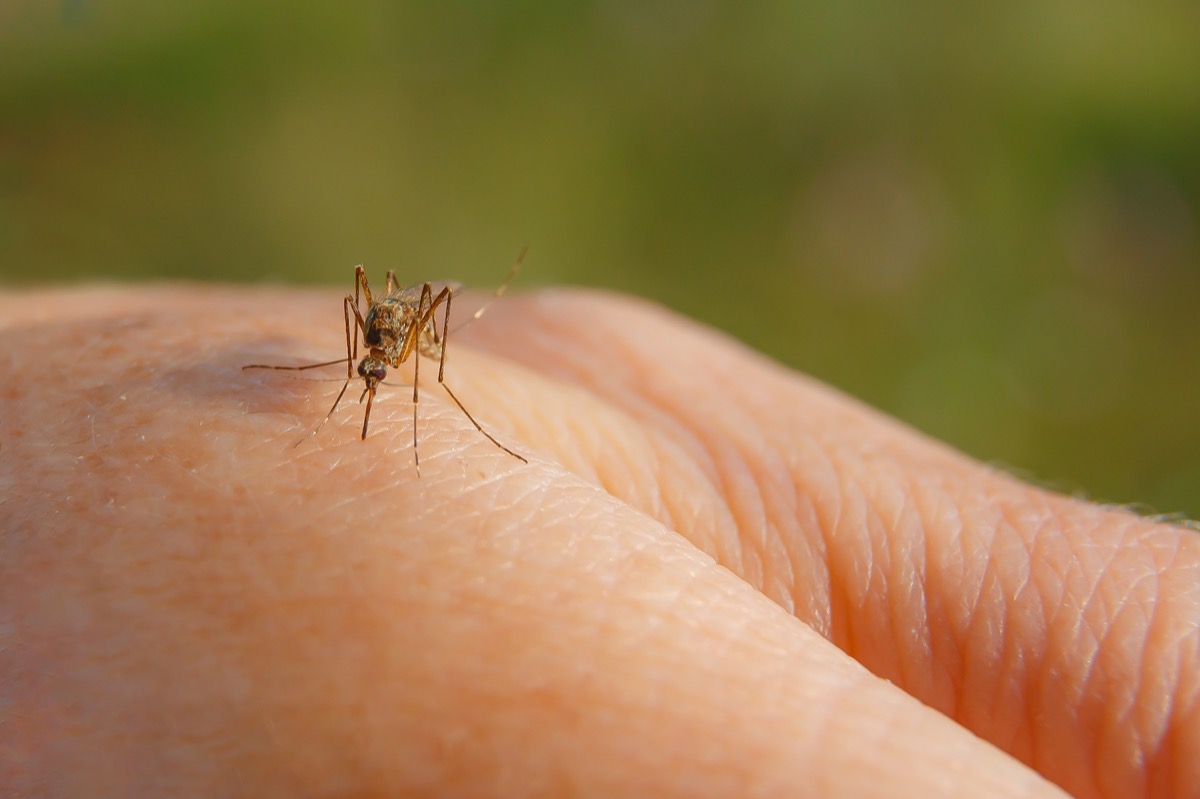If You Live Here, Prepare for “Extremely Aggressive” Mosquitoes

Every summer, swarms of mosquitoes descend on the U.S., leaving folks with itchy bug bites and, in some cases, even transmitting diseases like Zika virus, West Nile virus, and dengue fever. While, in most cases, a wave of a fly swatter is sufficient to keep these bloodsuckers at bay, experts warn that residents of one area in the U.S. should prepare themselves for an onslaught of “extremely aggressive” mosquitoes soon. Read on to discover if you should be arming yourself against these pests in the near future.
RELATED: If You Live Here, Prepare for it to Be “Raining Cockroaches,” Experts Say.
Vermont is seeing a large volume of aggressive mosquitoes.

Communities around the Lemon Fair River in Vermont have been recently plagued by a major influx of aggressive mosquitoes as of late. “They’re relentless. They’re extremely aggressive,” said Craig Zondag, field coordinator for the Lemon Fair Insect Control District, told VTDigger. “They’re just waiting for a blood meal.”
While Zondag reported catching approximately 6,300 mosquitoes in traps during the state’s mosquito season in 2020, he caught nearly the same number in a single day this year.
For more summer health news delivered straight to your inbox, sign up for our daily newsletter!
Unusual weather conditions have given rise to the influx.

Mosquito eggs can remain viable for up to seven years, meaning that many of the ones from 2020—during which there were widespread droughts—may not have hatched that year.
Now, they’re hatching this summer due to the season’s significantly wetter conditions. “It’s kind of like a seed bank out there of mosquito eggs just waiting for the perfect storm,” Zondag explained.
The mosquitoes may be more likely to transmit disease.

In addition to being particularly aggressive, the type of mosquitoes emerging in Vermont may be more likely to transmit disease than those found in the state in previous years.
The mosquitoes that are normally present in the area are the aedes vexans, or inland floodwater mosquito, which typically lay their larvae on the ground, making it easy to eradicate them through the use of insecticide. However, the latest crop of mosquitoes are upland mosquitoes, which lay eggs in water, making them more difficult to eliminate.
Upland mosquitoes lay more eggs than the aedes vexans, and thus need to feed more frequently, but also have longer lifespans than their floodwater counterparts, giving them more opportunities to spread disease. However, Zondag explained to VTDigger that while the potential for greater spread of mosquito-borne disease is there this year, Vermont has not identified disease-carrying mosquitoes within the state in years past.
If you’re spending time outdoors, protect yourself.

While you may not be able to avoid all mosquitoes this summer, there are ways you can—and should—protect yourself, particularly if you’re in an area experiencing a particular influx this summer.
In addition to wearing long sleeves and long pants when it’s tolerable to do so, the Centers for Disease Control and Prevention (CDC) recommends wearing permethrin-treated clothing, using an EPA-registered insect repellent, and emptying and cleaning or covering anything on your property that might hold standing water, like bird baths, trash cans, pools, or toys.
RELATED: If You Live Here, Prepare to See Thousands of Tarantulas, Experts Say.